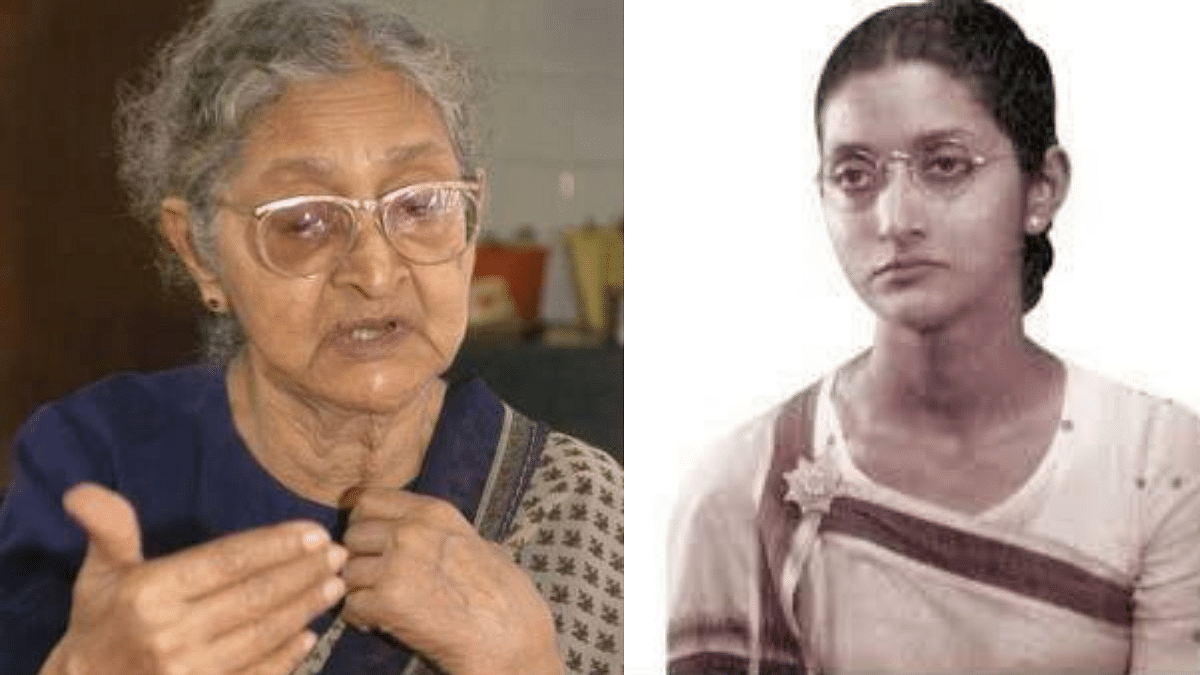Muthamma is credited to be the first woman to join the Indian Foreign Services in 1949. She served as India’s ambassador to several countries & fought for her rights in SC.

New Delhi:
On 24 June, the world celebrates the International Day of Women in Diplomacy. In India, one such woman who paved the way for others in diplomacy was Chonira Belliappa Muthamma — the country’s first woman diplomat.
Born on 24 January, 1924, in Virapjet — a small town in Karnataka’s Kodagu district — Muthamma was the first Indian woman to clear the Union Public Service Commission (UPSC) examinations in her first attempt in 1948.
Her journey as the country’s first woman Indian Foreign Services (IFS) officer, however, was full of hurdles as she fought for and ensured she got what she deserved.
When Muthamma joined the foreign services, the ratio of women in administrative positions, was staggeringly low and men held most of the administrative positions. The male-dominated hierarchy was uncomfortable with the idea of a woman being equal to them.
According to Chokila Iyer, the first woman Foreign Secretary of India, Muthamma “opened the doors of South Block for her sisters in India.” In her tribute to Muthamma in the book Slain by System published in 2003, Iyer even called her “a diplomat par excellence and a fearless & forthright officer.”
Iyer added, “Diplomacy, like many other career avenues, has been forced to open its portals to both the sexes. For reasons not quite sustainable by logic, it was considered a chasse garde and a natural monopoly of men.”
Muthamma’s encounter during her UPSC interview was her first introduction to the challenges that lay ahead. She faced discrimination and discouragement from the then UPSC Chairman taking her interview, who tried to dissuade her from joining the IFS, she claimed in her writ petition to the Supreme Court in 1979 — which is considered a landmark judgment.
The UPSC chairman later personally informed Muthamma that he gave her the minimum marks in her viva by using his influence, said the writ petition.
She also had to sign an undertaking that she might have to resign from the IFS if she got married — a declaration as part of the “marriage rule”.
Rule 18 of the Indian Foreign Service Rules 1961 stated that “no married woman shall be entitled as of the right to be appointed to the service”.
Despite these hurdles, she joined the IFS in 1949 and served as India’s first woman diplomat for 32 years. Beginning her carrier as a Third Secretary in Paris, she served in several postings that were considered “difficult”, including Hungary and Ghana. Her last posting was in 1982 where she served as the ambassador to the Netherlands in The Hague.
A distinguished career
Muthamma’s father, an Indian Forest Officer, died when she was only nine years old and she, along with her sisters, was raised by their mother.
She graduated from Women’s Christian College in Chennai with triple gold medals and went on to complete her post-graduation from Presidency College, Chennai, with a degree in English Literature in 1948.
The same year, Muthamma sat for the civil services examinations and cleared the exam on the first attempt.
She then started as a Third Secretary in Paris and was later posted to Rangoon. She was shifted to London soon after. When she came back to Delhi, she was allotted the coveted division of the Ministry of External Affairs that dealt with Pakistan.
Later, she was given the much sought-after wing — “The Americas”.
After her retirement in 1982, she was nominated as a member of the special non-governmental Independent Commission on Disarmament and Security Issues — better known as the Palme Commission. She spent her retirement years with her brother in Bengaluru.
The landmark judgment
Systemic bias and inequality reached their peak when in 1979 Muthamma moved the Supreme Court after she was denied promotion to Grade I of the Service. She alleged that she was denied this position merely because she was a woman.
Her writ complaint mentioned that there was a long-standing practice of hostile discrimination against women in the foreign service. Following the petition, the ministry promoted her immediately in the hope that the SC would dismiss the case.
The central government also issued a statement that said, “Although the petitioner was not found meritorious enough for promotion some months ago, she has been found to be good now, has been upgraded and appointed as Ambassador of India to the Hague, for what it is worth.”
The Supreme Court dismissed the case, but Justice V.R. Krishna Iyer, who was part of the three-member bench hearing the matter, said: “The misogynous posture (of the Ministry of External Affairs) is a hangover of the masculine culture of manacling the weaker sex, forgetting how our struggle for national freedom was also a battle against women’s thraldom.”
With several achievements attached to her name, Muthamma, who passed away on 14 October, 2009, at 85, has left behind a lasting legacy for several women who aspire to be in the civil services — fighting the same struggle she fought decades ago.
(Edited by Richa Mishra)
source: http://www.theprint.in / The Print / Home> India / by Divyanshi Chandra / June 24th, 2023

